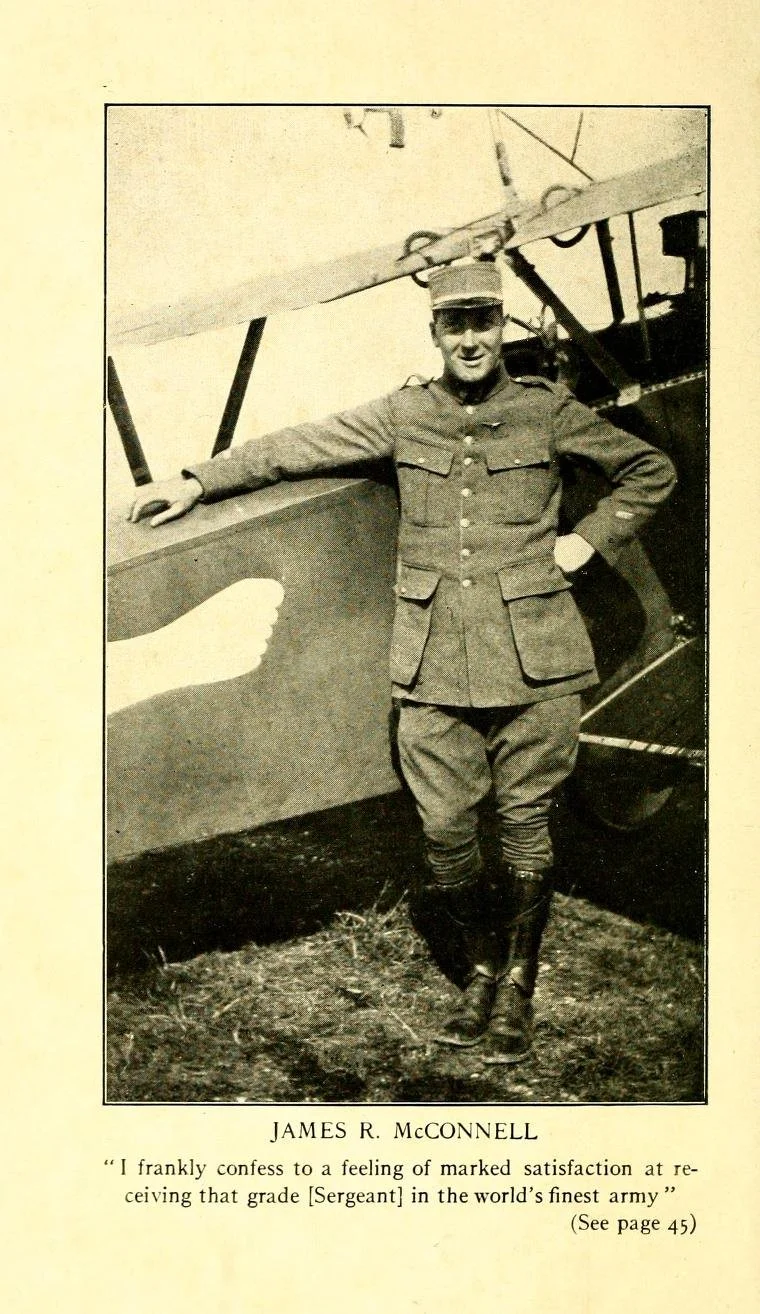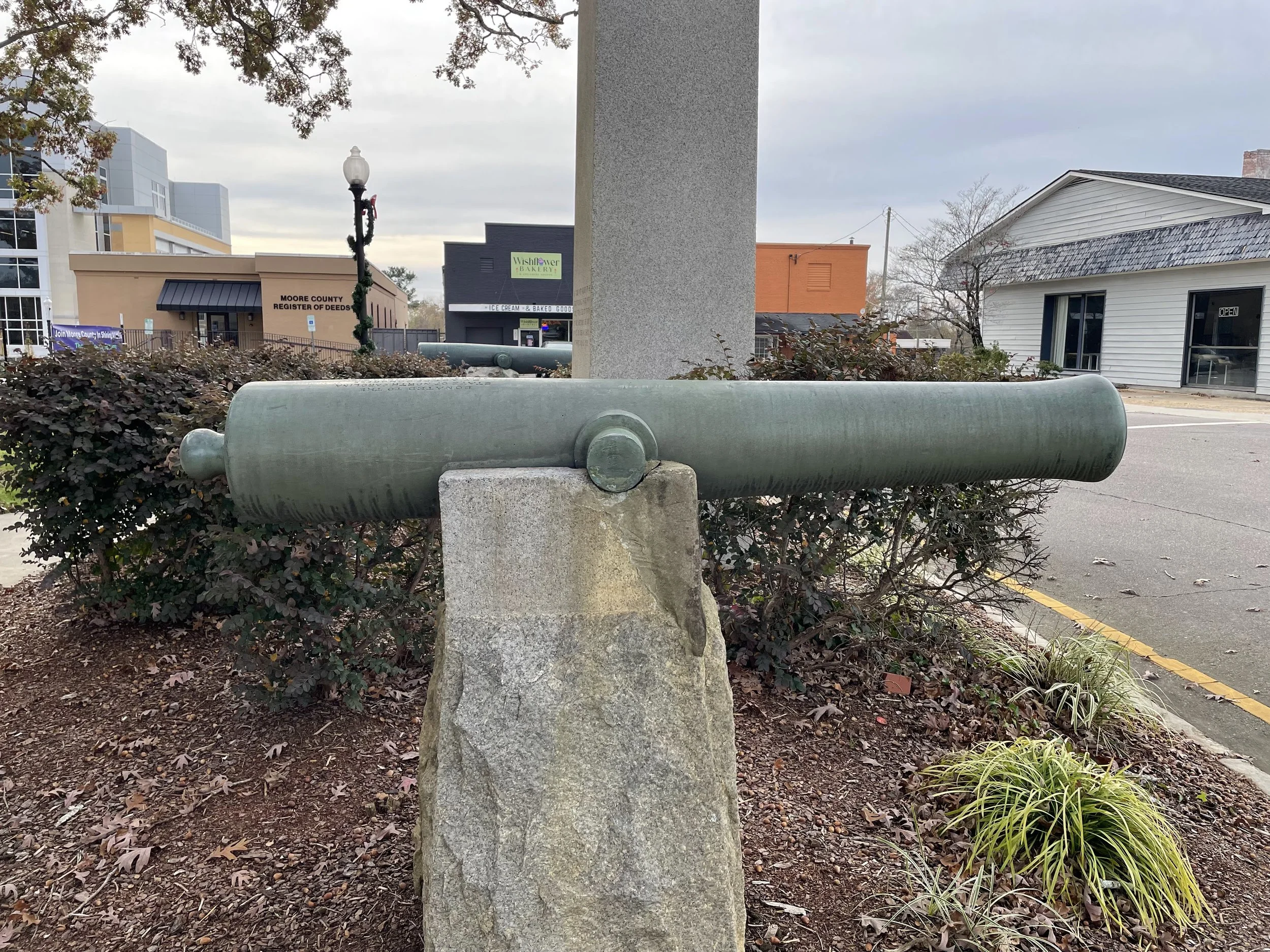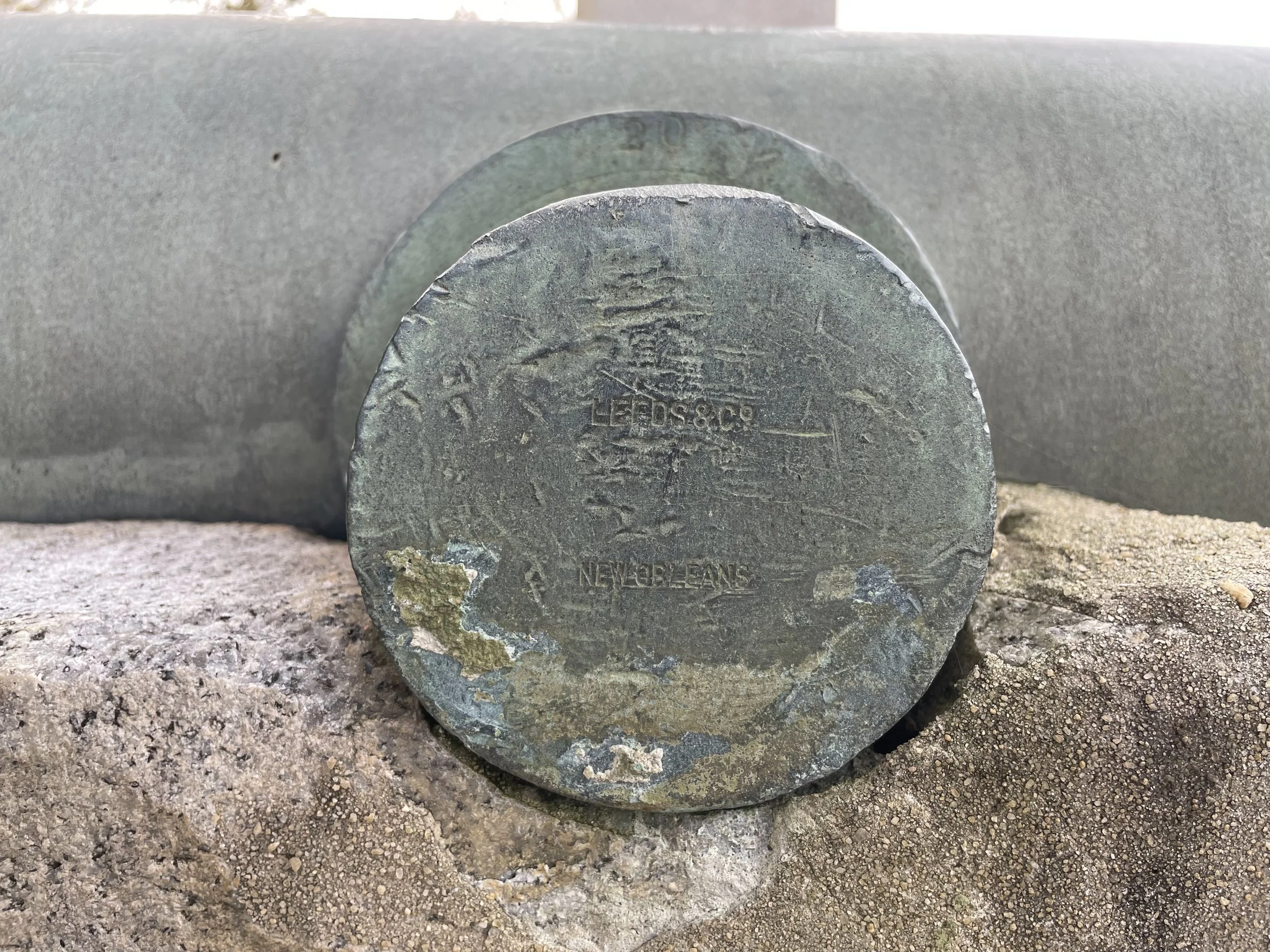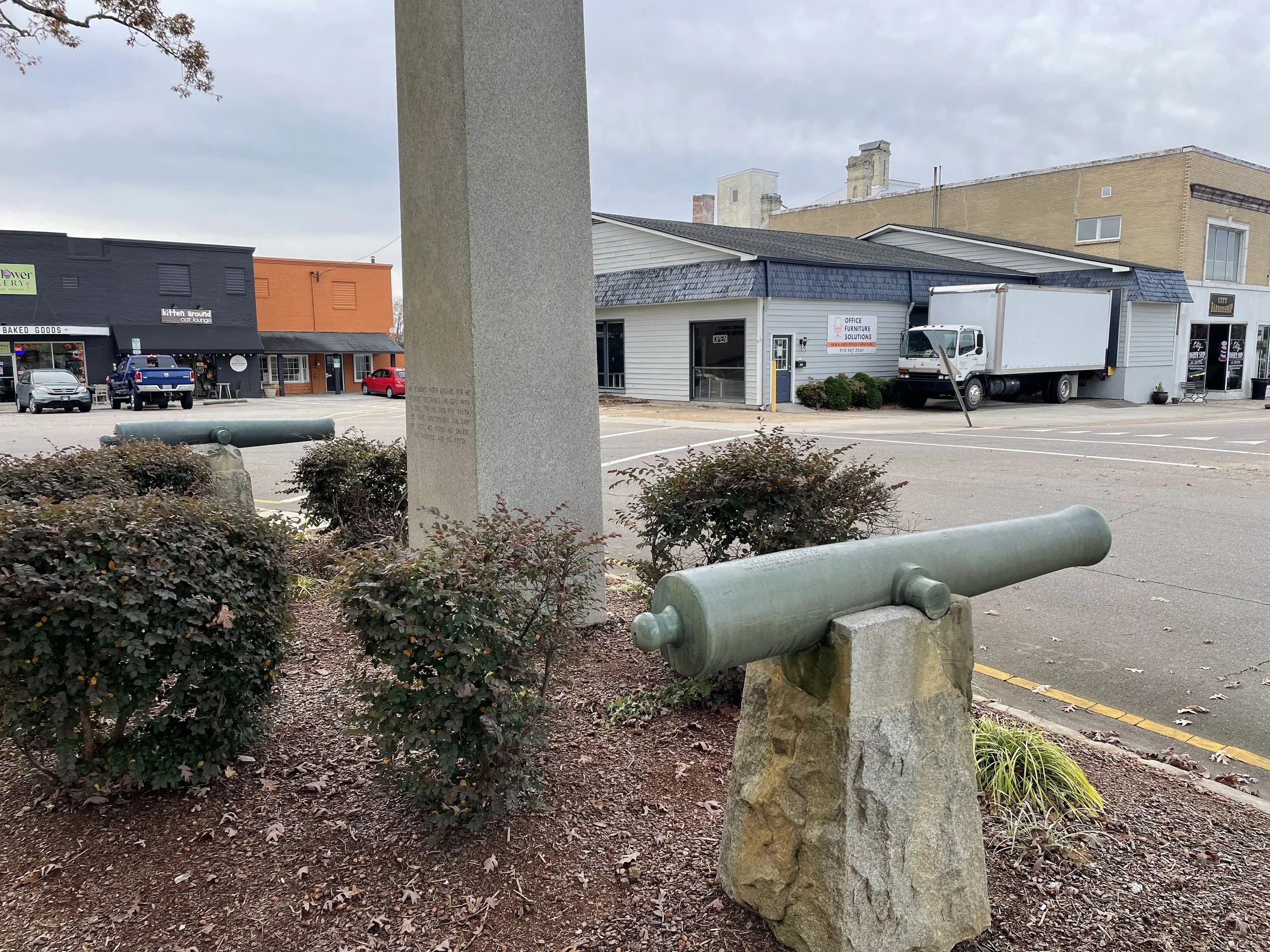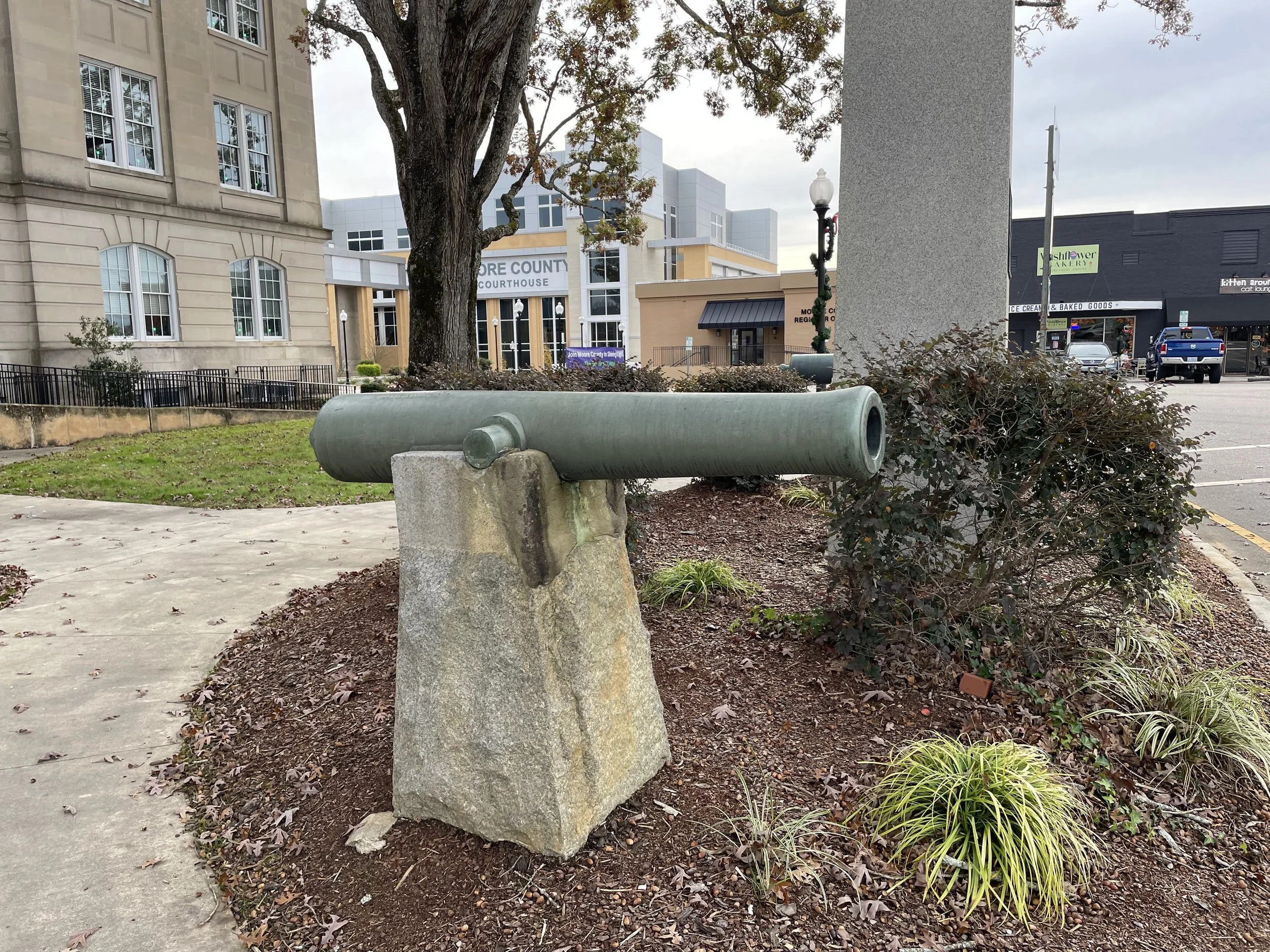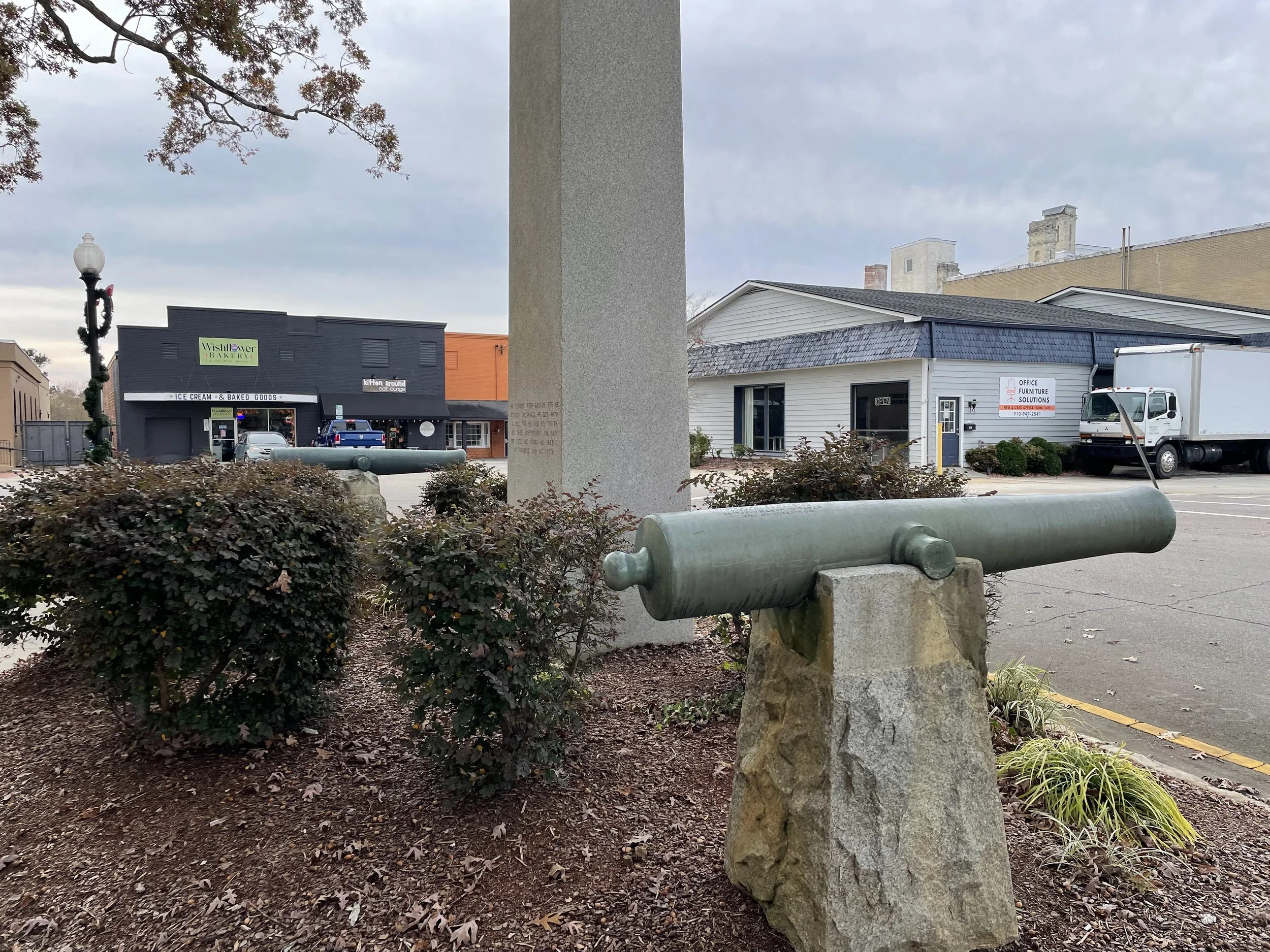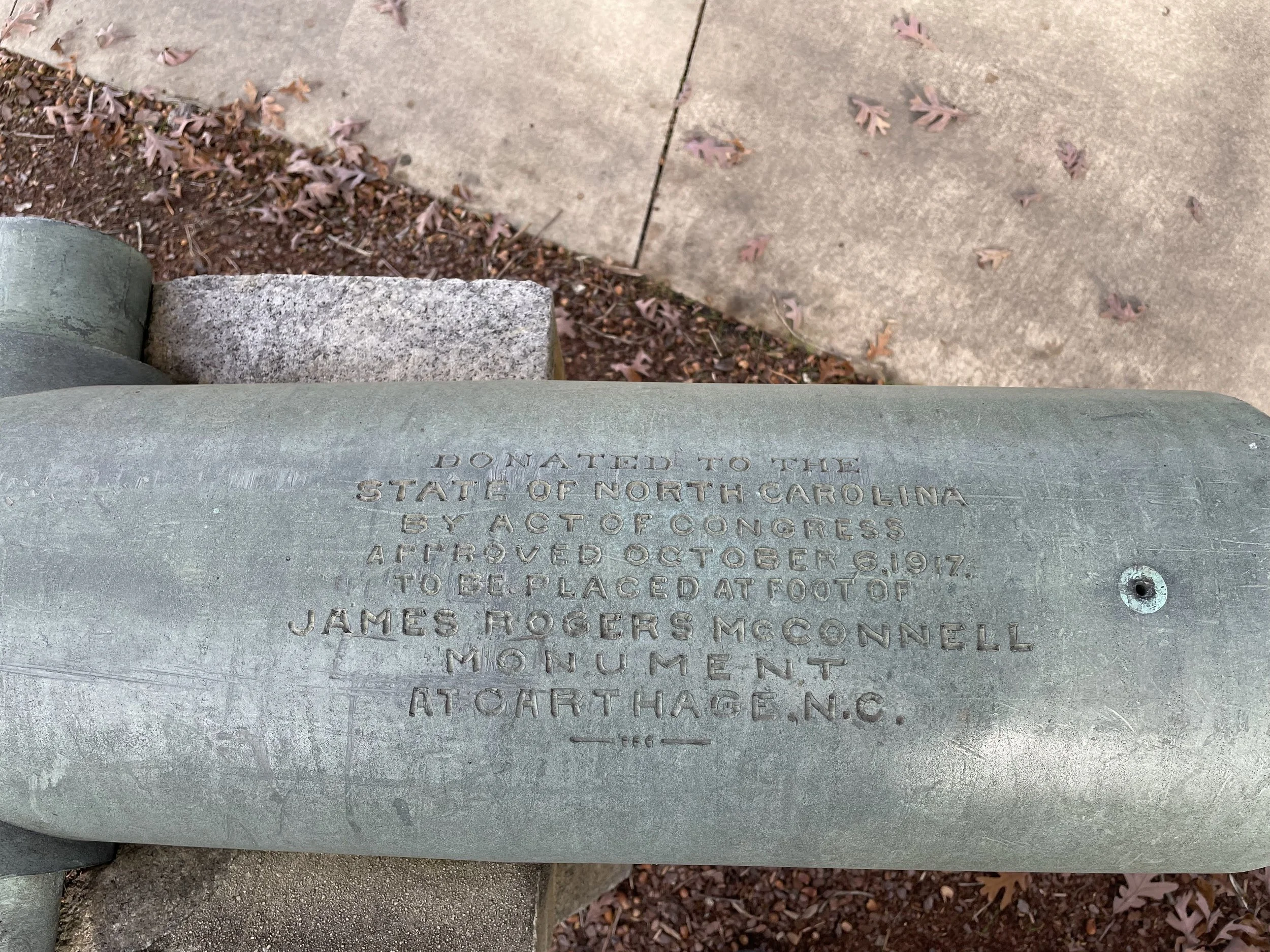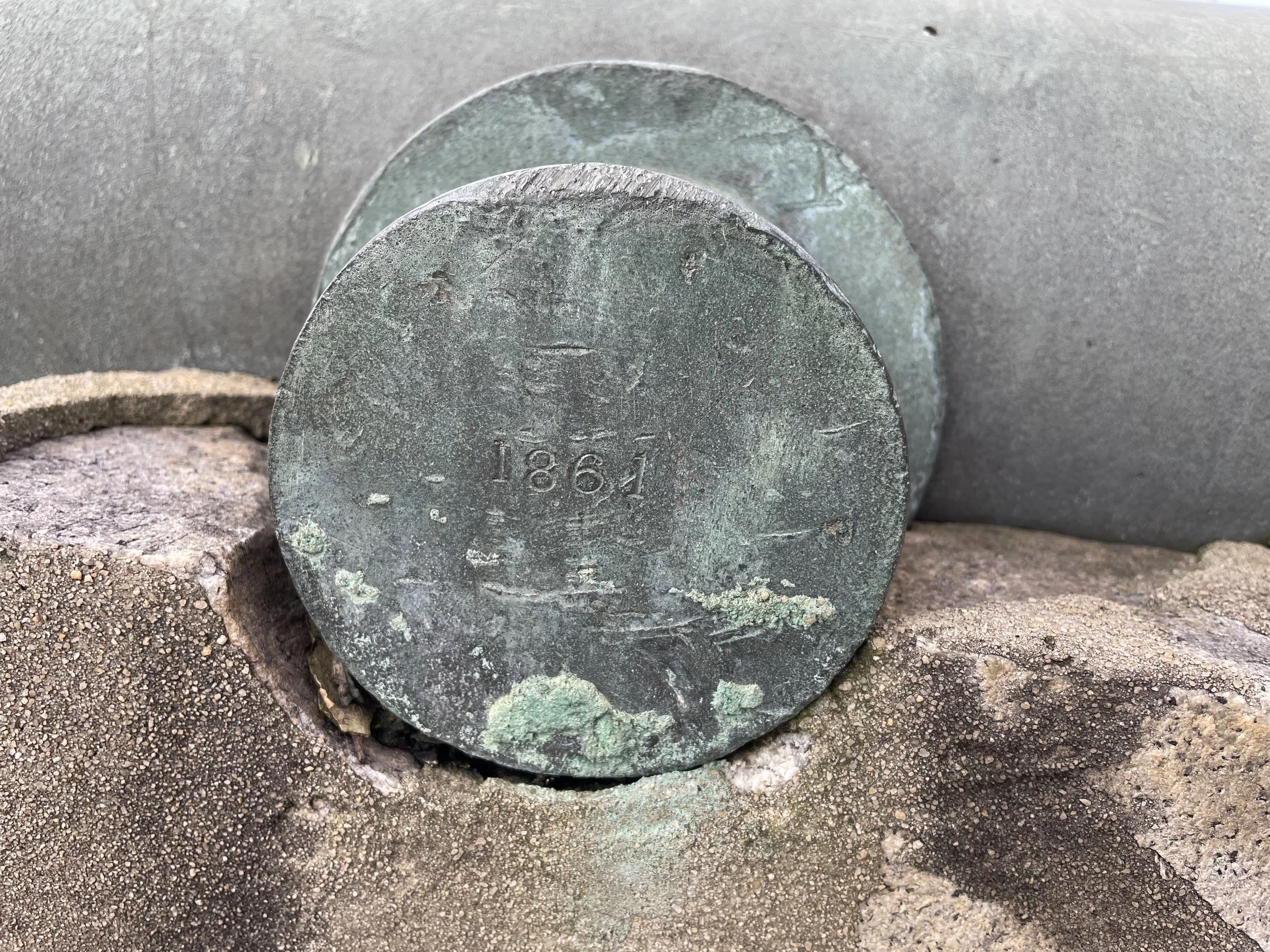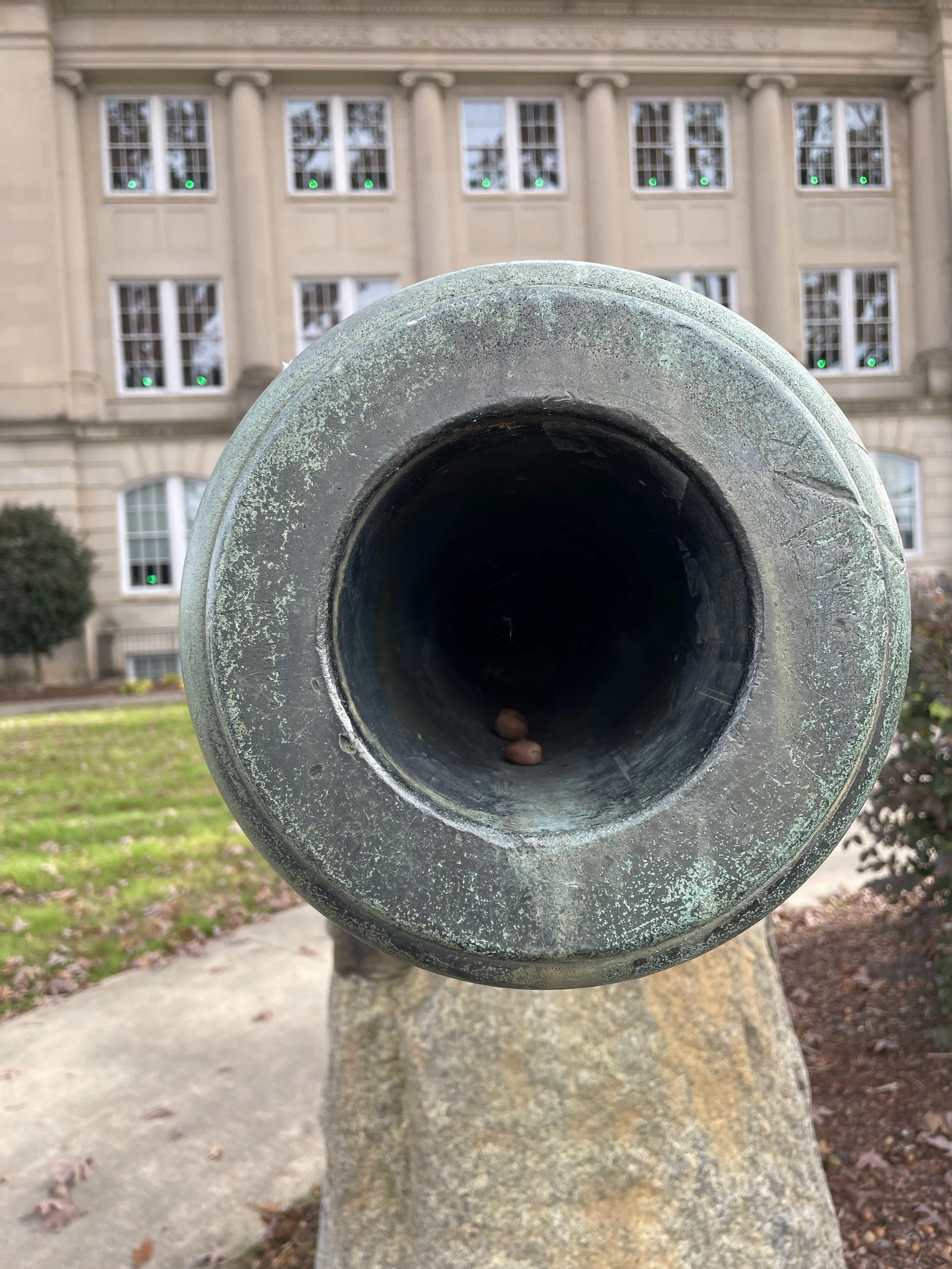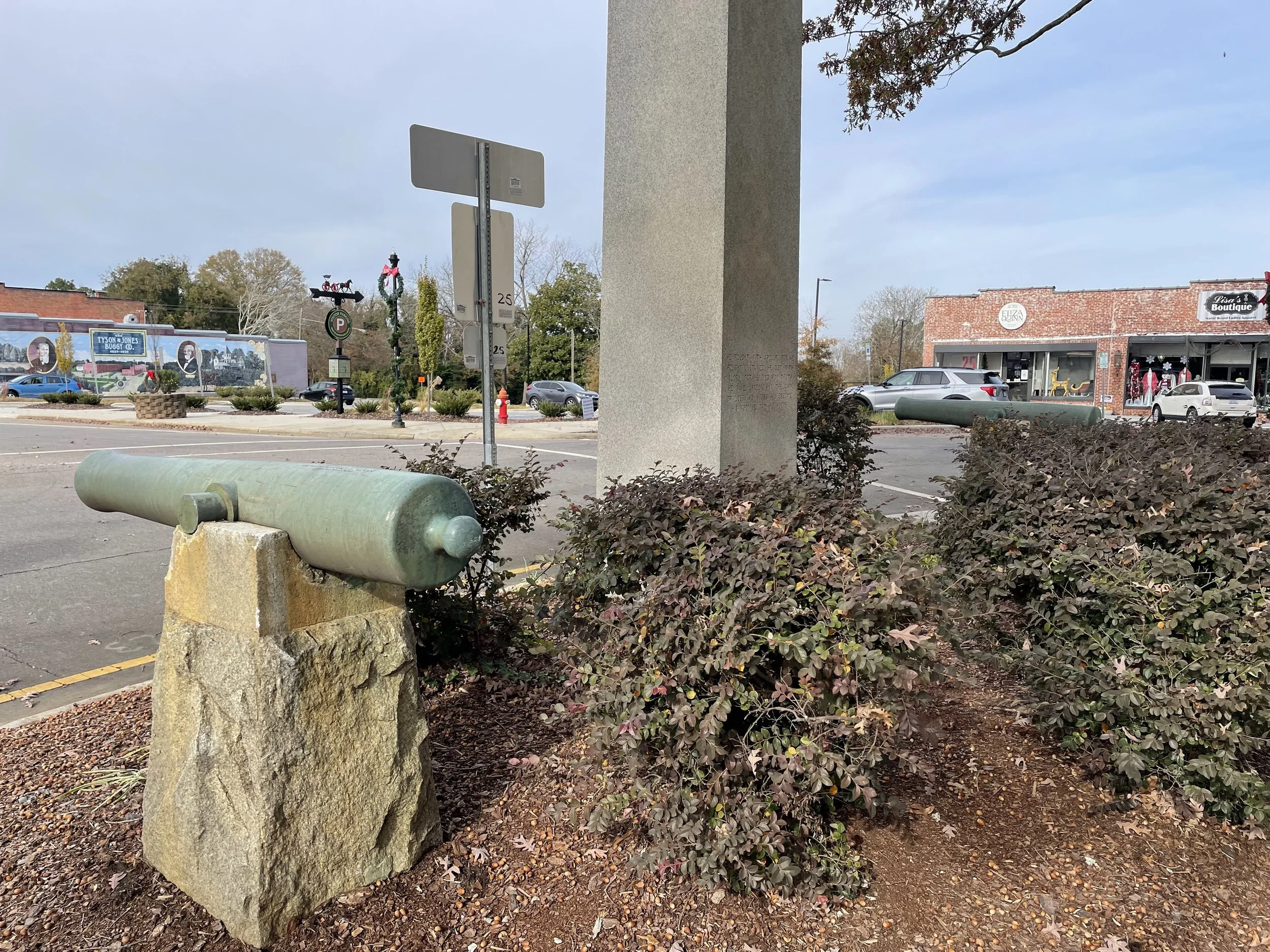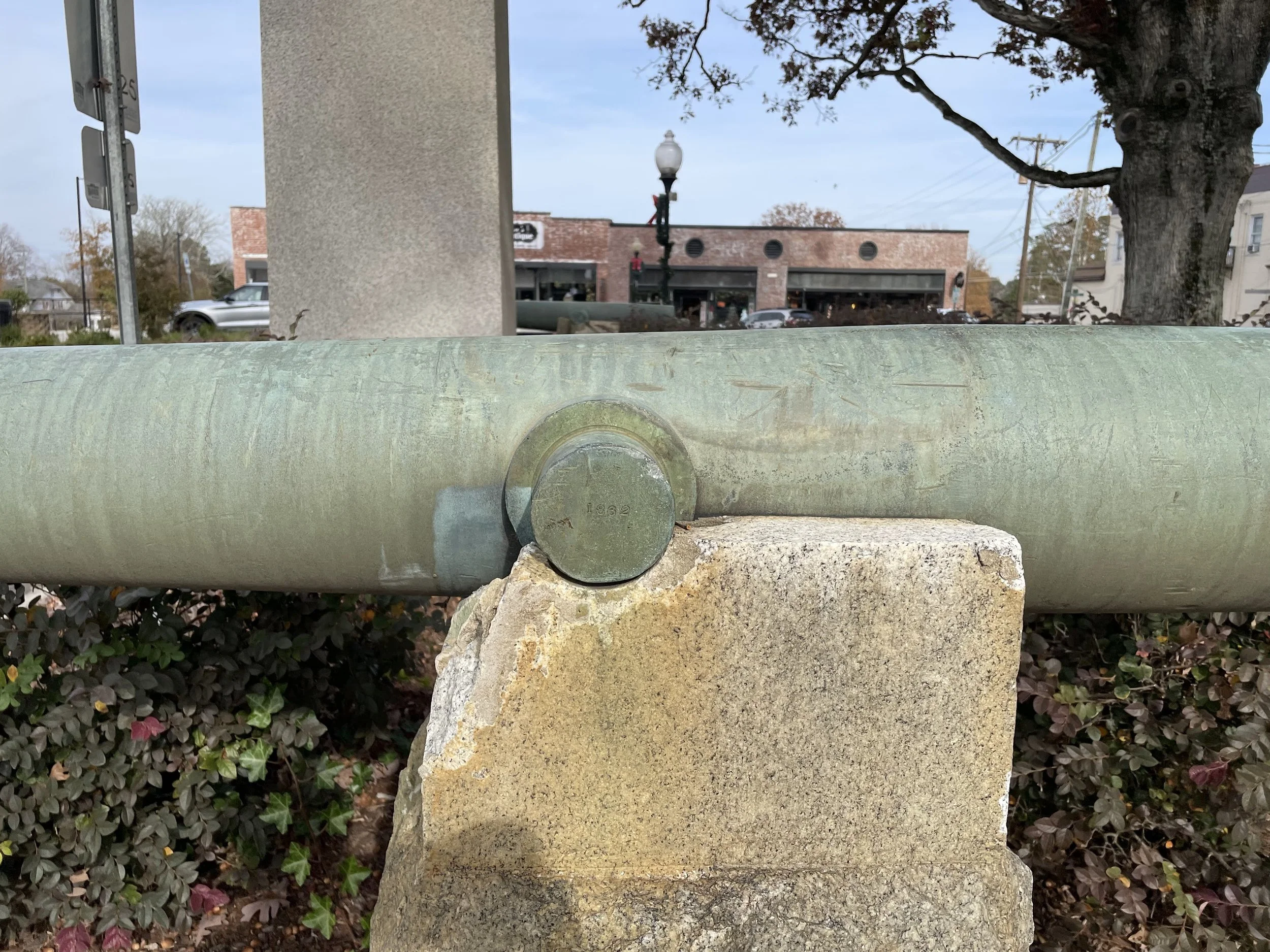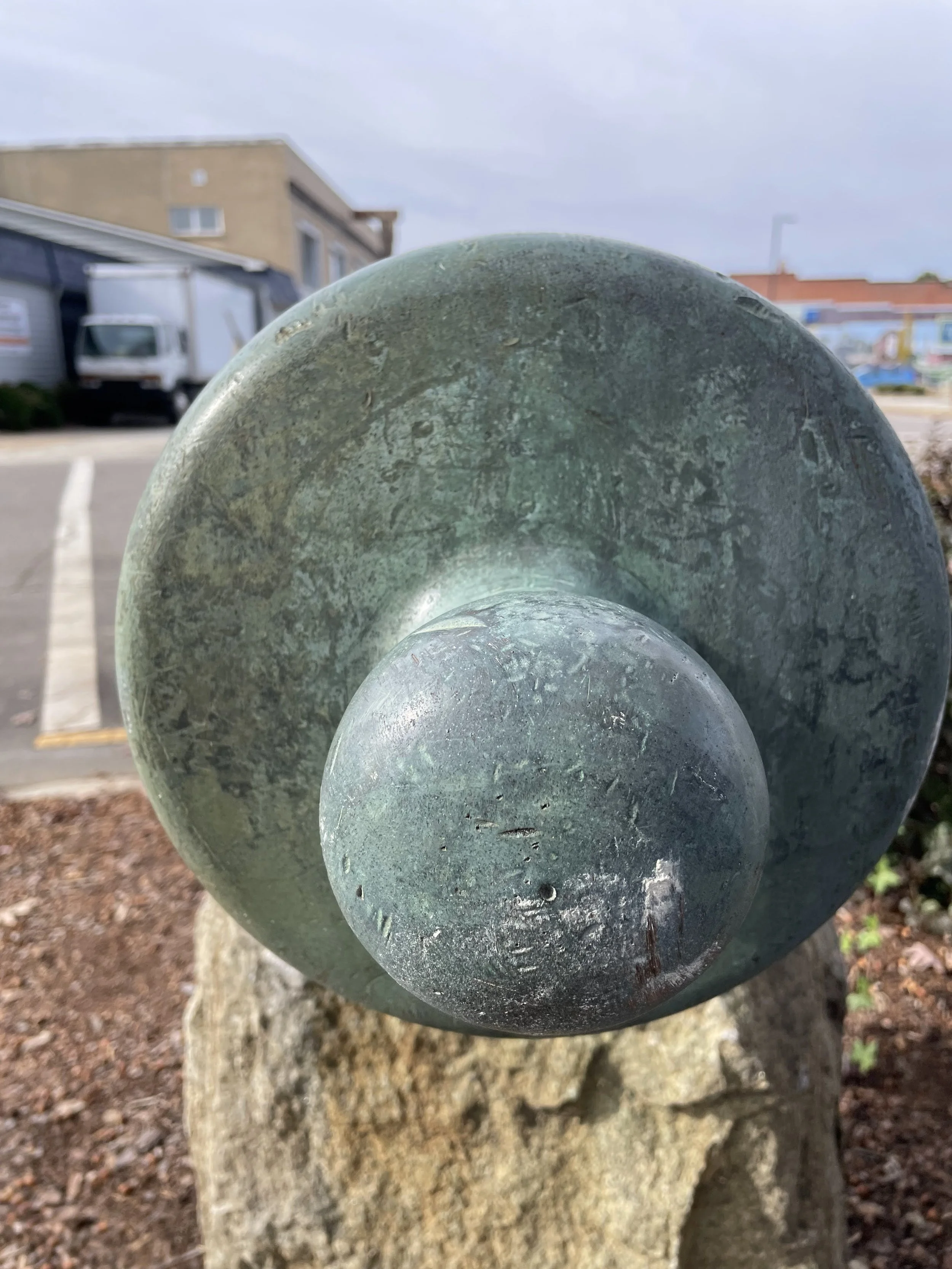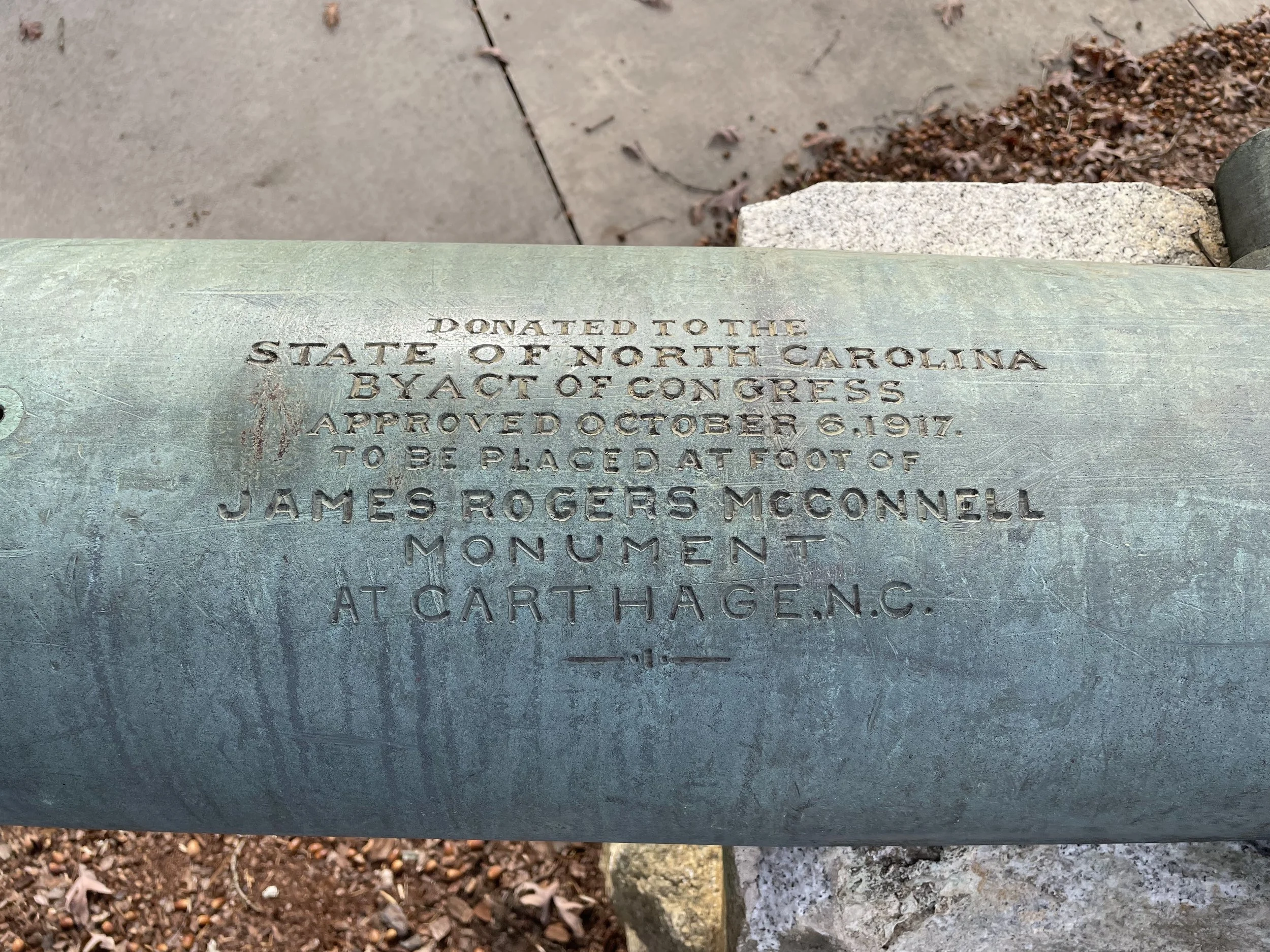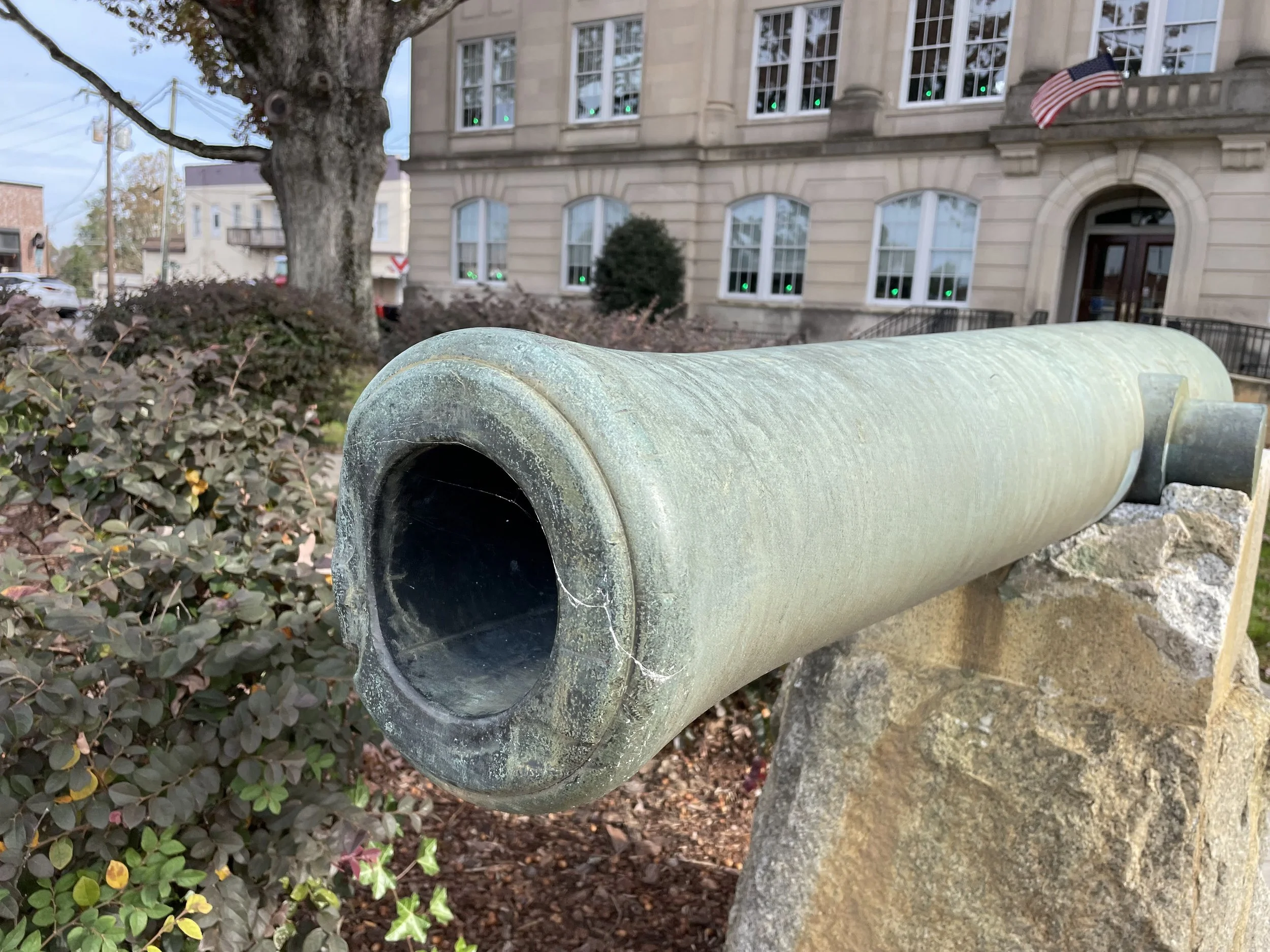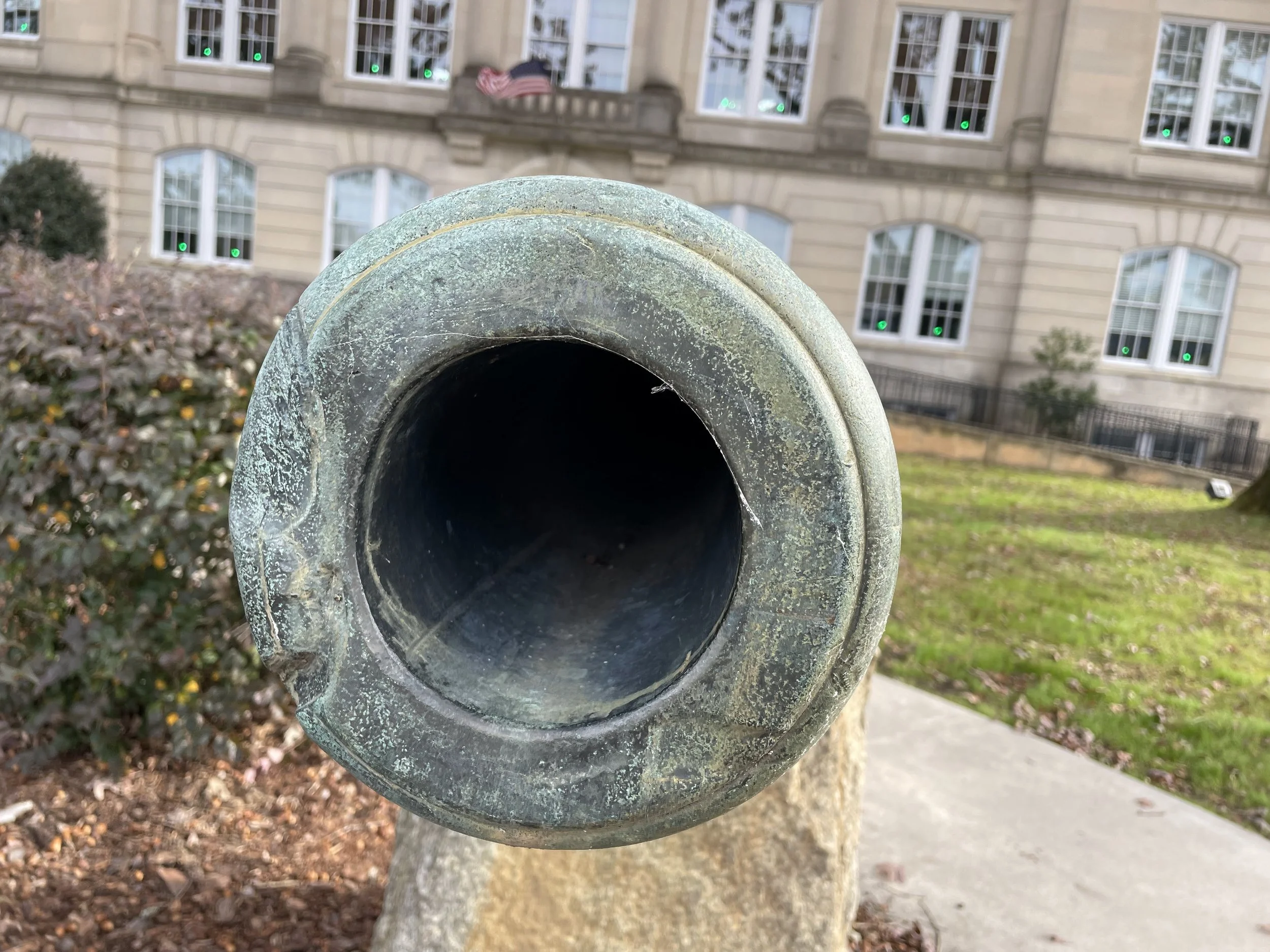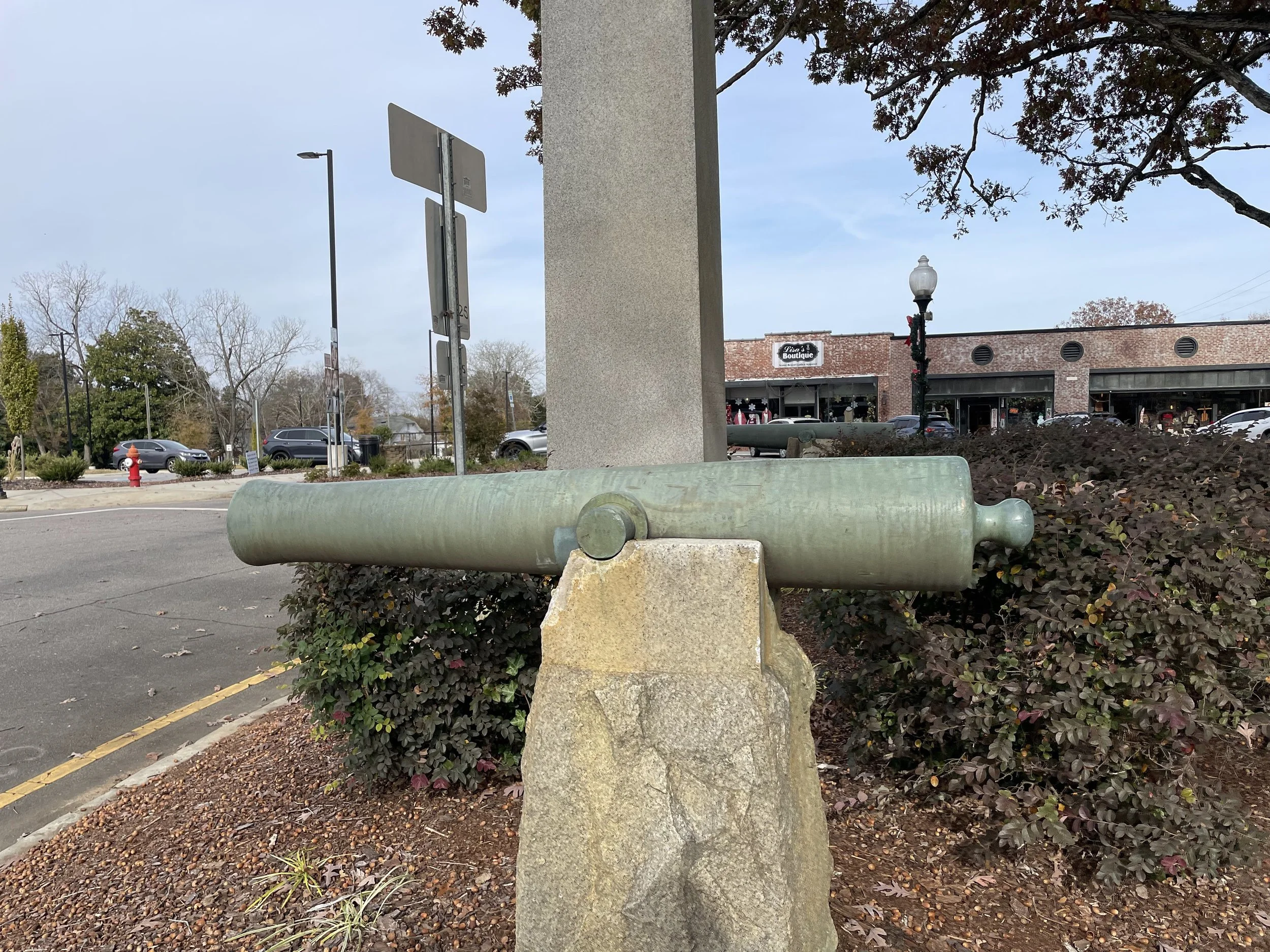The Napoleons of Carthage, North Carolina
Two Napoleons (12-Pounder Field Gun-Howitzers of the American Civil War) flank a monument to James Roger McConnell in Carthage, North Carolina outside of the historic former Moore County Courthouse.
James Rogers McConnell
James Rogers McConnell - pictured in his book Flying for France
James Rogers McConnell was born in Chicago. His parents later moved to Carthage - as he eventually did as well. It was in Carthage in 1915, standing outside the courthouse where his monument now stands that he told a friend, "These Sand Hills will be here forever, but the war won't; and so I'm going." In January 1915 he sailed for France to volunteer in the American Ambulance Corps. The same friend wrote in the forward of McConnell’s book Flying For France, “He joined the American ambulance service in the Vosges, was mentioned more than once in the orders of the day for conspicuous bravery in saving wounded under fire, and received the much-coveted Croix de Guerre.
Seeking a more active role, McConnell trained to be a pilot and became one of the founding members of L'escadrille La Fayette - a until of American volunteers in French Service. He flew Nieuports in the Battle of the Somme and the Battle of Verdun.
His book reveals a love of flying. It also reveals the enormous cost of the war as members of his squadron are lost in combat over the trenches.
“Some of the Americans who are flying for France” - pictured in Flying For France
James Rogers McConnell was shot down and killed in action on March 19th, 1917. He is memorialized in Carthage, North Carolina and in the form of the sculpture “The Aviator” at his alma mater, the University of Virginia.
Sergeant Lufbery’s Nieuport in Flying For France
Mural honoring James Rogers McConnell in Carthage, North Carolina
The Monument to James Rogers McConnell in Carthage, North Carolina
The Reverse of the Monument
12-Pounder Napoleon Leeds Number 20 (foreground) and 12-Pounder Napoleon Leeds Number 37 (background) are seen flanking the monument to James Rogers McConnell in Carthage, North Carolina
The Napoleons in Carthage, North Carolina
The Napoleons displayed beside the monument in Carthage were manufactured by Leeds and Company of New Orleans. Prior to the Civil War, Leeds and Company produced steam engines and equipment for sugar mills, saw mills, and cotton gins. With the beginning of the war, Leeds made an effort to cast heavy artillery, but their 8-Inch Columbiad failed - bursting on its sixty-third round in proof firing. The production of bronze field artillery was more successful. Daniel and Gunter list forty-nine bronze field guns delivered to Confederate arsenals: eleven 6-pounders, seventeen 6-pounder rifles, nine 12-pounder howitzers, and twelve 12-Pounder Napoleons. The Napoleons are among the earliest of the type to have entered Confederate service.
In outward appearance, the Leeds Napoleons fairly closely resembles the US Army Napoleon (officially the 12-Pounder Bronze Field Gun, Light, Pattern of 1857). The Leeds Napoleons have a muzzle swell and appear to have been turned on a lathe. The majority of Confederate Napoleons have no muzzle swell and a fairly rough appearance.
If Leeds production of 12-Pounder Napoleons was indeed only twelve guns, then very unusually all Leeds Napoleons survive to present as Olmstead, Stark, and Tucker list twelve survivors.
The two Napoleons at Carthage are:
12-Pounder Napoleon, Leeds and Company Number 20, cast in 1861
12-Pounder Napoleon, Leeds and Company Number 37, cast in 1862
Number 20 is one of two surviving Confederate Napoleons dated 1861. (The other is Leeds Number 19 at Petersburg.)
Both Napoleons are inscribed noting that they were donated to the State of North Carolina by the United States Congress on October 6th, 1917 for the purpose of placing at a monument for James McConnell.
12-Pounder Napoleon, Leeds and Company Number 20
12-Pounder Napoleon, Leeds and Company Number 37
The Napoleons in Carthage are of Confederate manufacture. They honor a man born in Chicago who died fighting for France in the Great War.
